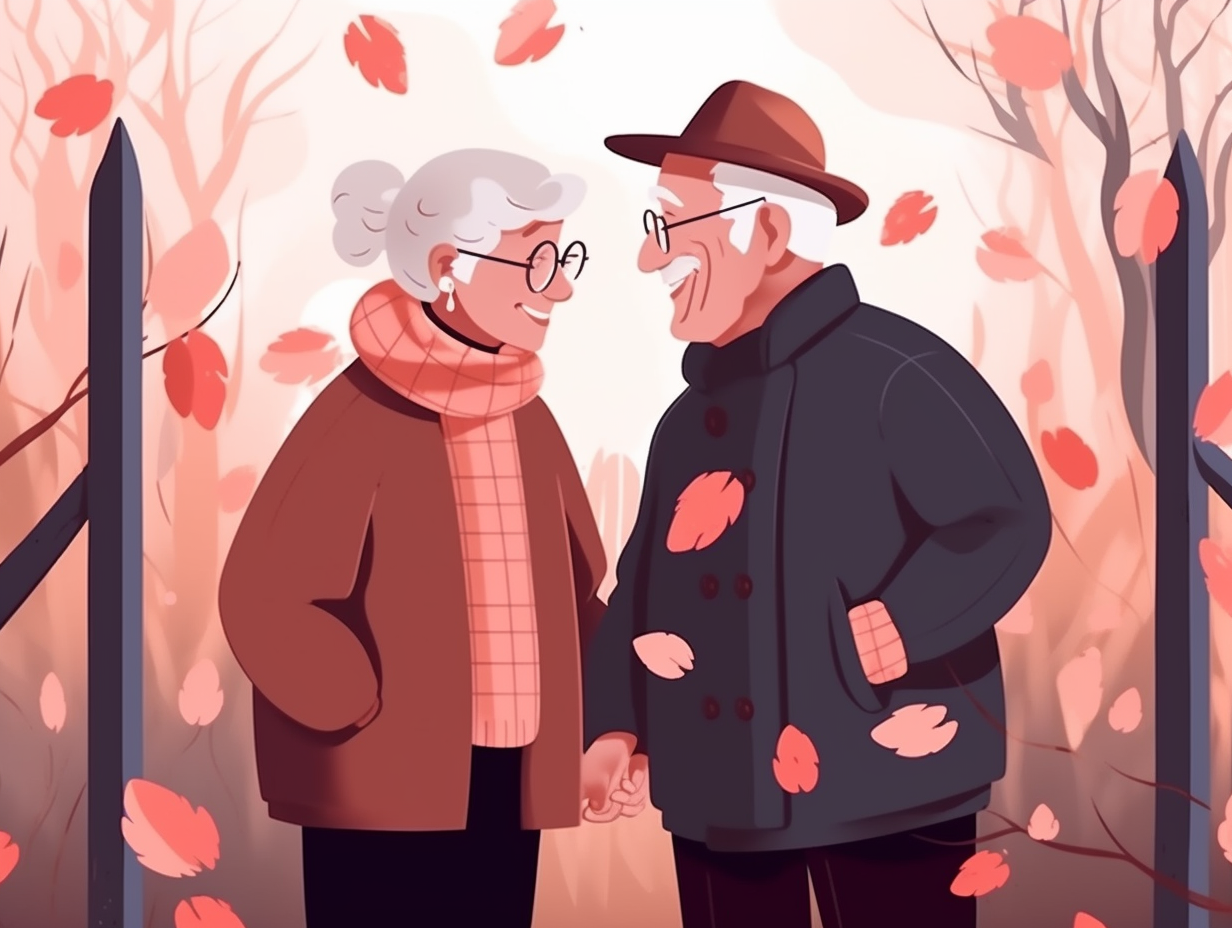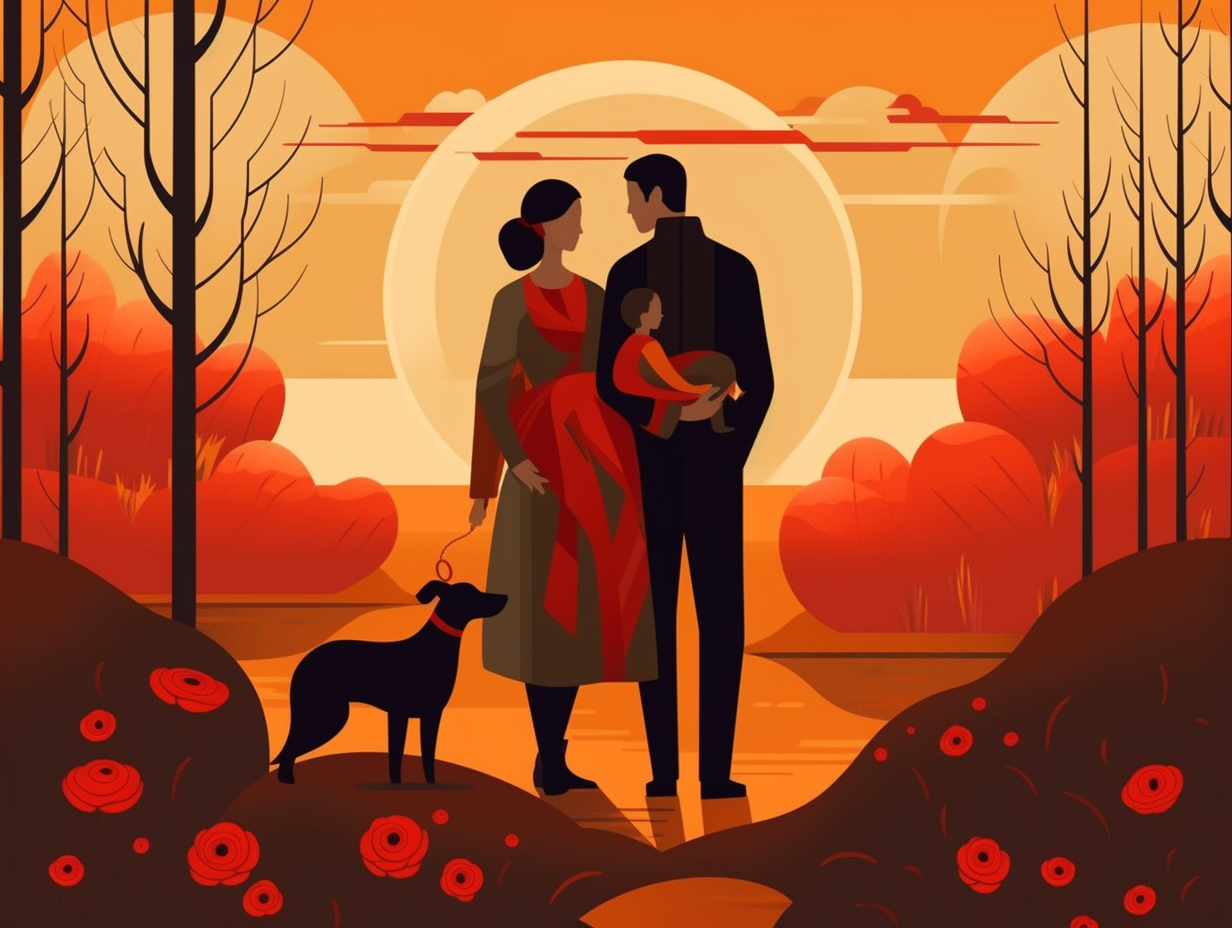Discover Love's Mysteries: Top 10 Amazing Fun Facts About Love You Never Knew!

1. Love Chemicals on a Rollercoaster
Love is like a roller-coaster ride through Candyland on steroids, where every loop-de-loop is a sweet, obsessive whirlwind of emotions: Scientifically speaking, that's because our brains release a concoction of feel-good chemicals such as dopamine, adrenaline, and norepinephrine, causing euphoria, restlessness, and a focus on our love interest, while simultaneously lowering serotonin levels, which may lead to idealizing our partner and glossing over potential relationship red flags. So buckle up, lovebirds!
Source => sciencedaily.com
2. Oxytocin: The Love Hormone
When Cupid trades his arrows for a lab coat: Oxytocin, the "love hormone," not only fosters attachment in romantic relationships but also promotes altruism, cultivates trust, minimizes stress, triggers our in-built security system, and strengthens our fuzzball-fanatic bonds with pets.
Source => osmosis.org

Did you know a passionate kiss can burn up to 26 calories per minute? Discover the factors that contribute to this calorie-busting activity in our fun facts about kissing! 💋
=> Fun Facts about Kissing
3. Jeju Loveland: The Erotic Sculpture Park
Forget notions of Korean drama and passionate love affairs, the real action's taking place at a sculpture park: Jeju Loveland, located on South Korea's honeymoon haven Jeju Island, is an erotic spectacle with over 140 sculptures of humans in various sexual positions and even educational sex films since its opening in 2004. Fun turned controversial when, in 2018, certain exhibitions were criticized for depicting sexual crimes as "erotic imaginations." A brief intermission occurred in 2021 for renovations, but rest assured, the provocative park remains a curious attraction.
Source => en.wikipedia.org
4. Seahorses: Ultimate Dad Bods
Seahorses give the term "dad bod" a whole new meaning: male seahorses are the ones that carry their partner's eggs in their pouch for up to 45 days, ensuring a safe and nurturing environment before the little ones swim into the world – a level of paternal care that is as rare as it is adorable in the animal kingdom, with only humans participating in a remotely similar manner.
Source => oceana.org

5. Broken Heart Syndrome: It's Real!
Heads up, romantics: Achy Breaky Heart isn't just a catchy country tune you refuse to get out of your head! In reality, the New England Journal of Medicine reveals that heartbreak can actually cause broken heart syndrome, a condition which mimics a heart attack and is triggered by the release of stress hormones.
Source => everydayhealth.com
6. Apples: Ancient Greek Love Weapon
Feeling fruity in the pursuit of love? You may just have ancient Greek roots: Apples were once used as a form of seduction, thrown by suitors to catch the attention of their desired partners, thanks to their association with Aphrodite, the goddess of love and beauty.
Source => talesoftimesforgotten.com
7. Basil: A Herbaceous Wingman
In an attempt to spice up their love lives, men have been known to turn to a rather unusual wingman: Basil! Yes, the same herb that gives your pasta that extra zing can also work wonders in the bedroom: Basil leaves contain arginine, which increases sexual desires and improves sperm health, potentially preventing infertility, but beware – consuming large amounts may lead to estragol, a compound that has been linked to triggering cancer in mice. So, enjoy your basil-based wingman in moderation!
Source => lybrate.com
8. Blue Water Lily: Egypt's Love Blossom
If ancient Egyptians partied like it was 1999 BC, they'd have the blue water lily as the life of the soiree: In reality, this sacred flower symbolized the sun, rebirth, and healing, but there's no evidence that it was the secret ingredient for their love potions or fertility magic.
Source => touregypt.net
9. MHC: Your Nose Knows Your Mate
Don't be sniffy about love, because your nose might just call the shots: Our mate choices can be influenced by genes called major histocompatibility complex (MHC) that determine our unique body odors, with studies even finding that humans and rodents can detect these MHC-linked scents, although accurately describing and linking them to specific MHC alleles is quite challenging.
Source => journals.sagepub.com

10. Vagus Nerve: Real Butterflies in Your Stomach
The next time you're at a fancy dinner party and someone mentions having "butterflies in their stomach," remind them to apologize to their vagus nerve for stealing its thunder: It's actually this nerve that sends signals to your stomach when you're feeling nervous or excited, leading to that fluttery sensation that's commonly associated with a rush of adrenaline.
Source => betterhelp.com
Related Fun Facts
















